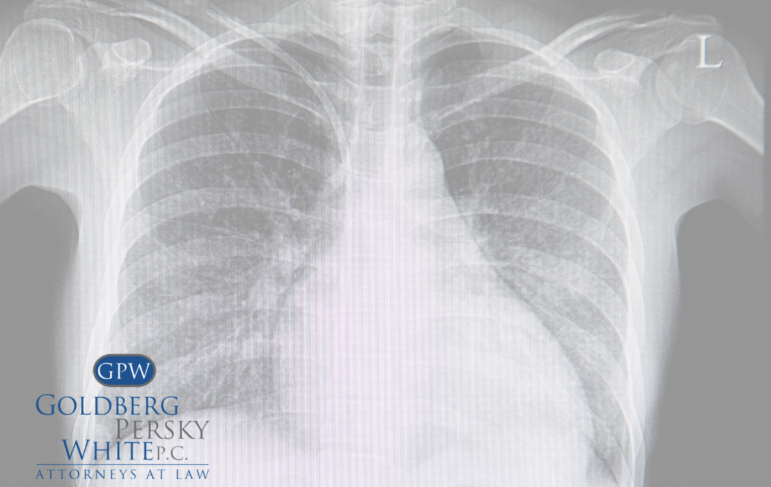Lung Cancer Awareness Month 2022
November is Lung Cancer Awareness Month. There are two types of lung cancer: non-small cell lung cancer and small cell lung cancer. Most cases, around 80 to 85 percent of lung cancers, are non-small cell. It can be broken down into adenocarcinoma, squamous cell carcinoma, and large cell carcinoma. These types are treated similarly because response to treatment and survival for these cancers are all similar. Adenocarcinoma is the cancer of the cells that normally secrete mucus. It is mainly in people who smoke or formerly smoked, but it is also the most common form of lung cancer in people who never smoked. It is also more common in women compared to men and is more likely to be in younger people. It is typically found in outer parts of the lung and is very likely to be found before it has spread.
Squamous cell carcinoma is the cancer of squamous cells, which are flat cells that line the airways in the lungs. It is most likely to be found in the central area of the lungs near an airway. Large cell carcinoma appears in any part of the lungs and is a quick growing cancer, so it is hard to treat before it spreads. There are also a couple more uncommon types including adenosquamous carcinoma and sarcomatoid carcinoma. The other main type is small cell lung cancer, which makes up 15 percent of lung cancer cases. It is fast growing and spreads very easily. Around 70 percent of people diagnosed with this type usually have cancer that has spread at the time of diagnosis.
There are multiple causes of lung cancer, but tobacco is the main reason for the cancer. Around 80 percent of lung cancer deaths are from smoking. Secondhand smoke is also problematic because it causes around 7,000 deaths every year. Radon, a naturally occurring radioactive gas with no color, odor, or taste is another cause. Some places have high concentrations of the gas, leading to it being the largest contributor to lung cancer cases in non-smokers. When people breath in the gas, the lungs are exposed to small amounts of radiation, causing lung cancer.
People exposed to asbestos are also at a higher risk of developing lung cancer. When people are exposed to smoke and asbestos together, they are 50 times more likely to develop lung cancer compared to either substance alone. Asbestos is heavily regulated in the United States, but it is not banned outright. Many older buildings have the carcinogen and many people who worked in mines, mills, textile plants, steel mills, power plants, manufacturing plants, anywhere that insulation was used, and shipyards are all at risk of lung cancer and mesothelioma, a cancer of the lining of the lungs, abdomen, heart, and testicles. Other causes of lung cancer include inhaled chemicals like arsenic, beryllium, cadmium, silica, vinyl chloride, nickel compounds, chromium compounds, coal products, mustard gas, chloromethyl ethers, diesel exhaust, air pollution, marijuana smoke, e-cigarettes, and talc (can contain asbestos).
There are treatments available for both types of lung cancer. Non-small cell lung cancer sufferers can undergo surgery, which can include a segmental or wedge resection, lobectomy, pneumonectomy, or a sleeve resection. A segmental or wedge resection involves the removal of a small part of the lung, a lobectomy involves the removal of an entire lobe of a lung, a pneumonectomy involves the removal of an entire lung, and a sleeve resection involves the removal of a piece of bronchus and the lung is then reattached to the remaining bronchus. Patients can also receive radiation therapy, which involves high levels of radiation known as external radiation being applied to cancer cells.
Chemotherapy can also be used, where drugs that interfere with cancer cells’ growth and reproduction are given to patients. Targeted therapy is also useful. The therapy involves drugs that target specific parts of cancer cells. They are usually used alongside chemotherapy. Immunotherapy is also quite useful for lung cancer. Immunotherapy helps the immune system fight cancer cells. One particularly useful immunotherapy drug is called a checkpoint inhibitor, which blocks proteins that let cancer cells hide from the immune system. When combined with chemotherapy, many patients have seen better survival. The immunotherapy drugs used for lung cancer include pembrolizumab, atezolizumab, and nivolumab.
Lung cancer is the most common cancer worldwide and is mostly caused by tobacco smoke, but has other causes including asbestos, radon, and inhalable chemicals. It is an extremely deadly cancer and is the leading cause of cancer death in both men and women. People in high-risk groups are recommended to go through cancer screening because it can reduce mortality by 14 to 20 percent. If you believe you have lung cancer caused by asbestos or another workplace exposure, contact us today to see if you could be entitled to compensation. Call 412-471-3980 or fill out our contact form and a member of our team will get back to you as soon as possible to review your case.




